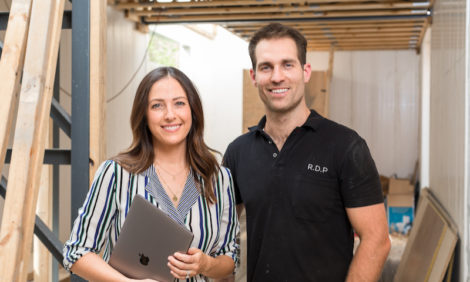
What small businesses and their advisors want from the Australian budget

With the Australian federal budget just around the corner on April 2, we asked several small businesses and their accountants and bookkeepers what they would like to see from policymakers. The answers varied but were consistent in theme: Create incentives and regulatory clarity so small businesses can grow. Here are their recommendations, in their own words.
“As a construction and design business, we’d love to see something in the federal budget to help provide better access to capital and funding for small businesses. We’re looking at the process now, and most banks won’t look at you unless you have something to secure against a loan or overdraft. It really shows the lack of confidence in small business from a banking perspective.” – Dan Reilly and Dani Wales, Red Door Project, North Melbourne
This is a common complaint from small businesses: the need to pledge one’s home against a business loan. The federal government, notably the Small Business Minister’s office, is working on ways to lower this hurdle. There are also alternatives to a secured loan. Xero lending partners such as NAB and Moula already offer loans of up to $500,000 with no collateral. Their lending decisions are based upon real-time financials in Xero that applicants choose to share, which makes for a paperwork-free application and a near instant decision.
“The biggest challenge for Tiger Tribe is that we’ve just reached the payroll tax threshold. When we were starting out, the government was really good with micro business and small business. Once you get a little larger, there’s a lot to hold you back. We considered offshoring some of our roles, though we haven’t done that yet. But the tax has made us think hard about taking on staff beyond our current 12. There should be incentives to employ people in Australia, not discourage hiring.” –Naomi Green, co-founder of Melbourne-based Tiger Tribe, which creates imaginative, portable activity sets and gifts for kids both Australia and abroad
Looking offshore
It’s perhaps inevitable that staffing costs spur some Australian business owners to consider offshoring. That was the genesis behind Satellite Office, founded in 2013. The Bondi Junction-based firm has over 600 employees who are dedicated to creating teams in the Philippines that serve clients’ needs in customer service, marketing, IT, finance and back office – at a significant discount to Australian costs. The surprising outcome, according to Satellite Office, is that about 80% of clients go on to increase their Australian employment: the savings are reinvested back into the local business.
“Lowering the company tax rate would make Australia more competitive internationally. It would reduce the cost of operation, which assists in redeploying capital to invest in the business and hire more employees. And the outcome would improve not just for the individual company but the Australian economy as a whole, due to the flow-on effect. The world is becoming a smaller place in terms of movement of people, competition in trade and product. And that trend is only accelerating with technology. To remain competitive, Australians must behave as if they’re operating in a global market. – Michael McRitchie, CEO and founder of Satellite Office, Bondi Junction, New South Wales
While small business owners are clear on how the federal budget could help, a recent survey suggests they aren’t holding their breath. Some 65 percent doubt the budget will deliver positive change, according to a poll cited by the Institute of Public Accountants. We spoke to several accountants to get their views on how the federal budget could help small businesses.
Advisors weigh in
“Business is hard enough when there is no consistent approach as to what a small business is, and what it must do to be legally compliant. It seems every year small business are slammed by proposed changes, such as the definition of a small business. One year, it’s proposed that it’s an entity turning over $100 million. But the next year, that changes. Depending on where you fit, there are different rules for different types of small businesses (CGT, depreciation, etc). Yes, I earn money navigating all this for my clients, but that just adds to the burden that they shoulder.” – Andrew Van De Beek, founder of illumin8, Mount Eliza, Victoria
“I’d like to see a continuation and increase of the instant asset write-off. I’d also like to see incentives for business education, especially before people start their first business – specifically regarding cash flow and record-keeping practices. For example, there could be a fully funded mandatory business course for all wanting to run a business. This could be tied to registering for an ABN or GST. I would love to see more incentives for business to tackle global warming even in small ways. One method might be a stamp-duty exemption for electric vehicles. Another might be incentives for paperless offices – go digital!” – Don Grgic, Boost Centre, Canberra
“I’m keen to see additional measures to boost the financial literacy of entrepreneurs and business owners. For example, the introduction of a compulsory online training program for prospective business owners before they can be issued with an ABN.” – Kylie Parker, Lotus Accountants, Marrickville Metro, New South Wales
At Xero, we’ll be covering the federal budget live on Tuesday night, when it’s released and in a breakfast panel discussion the following morning. You can follow our coverage on Twitter under #XeroBudgetAU. And if you want a look at measures from the 2018 budgetthat haven’t yet become law and bear watching, be sure to check out our roundup here, as well as a preview of what may be in this year’s budget.
The post What small businesses and their advisors want from the Australian budget appeared first on Xero Blog.
Source: Xero Blog






